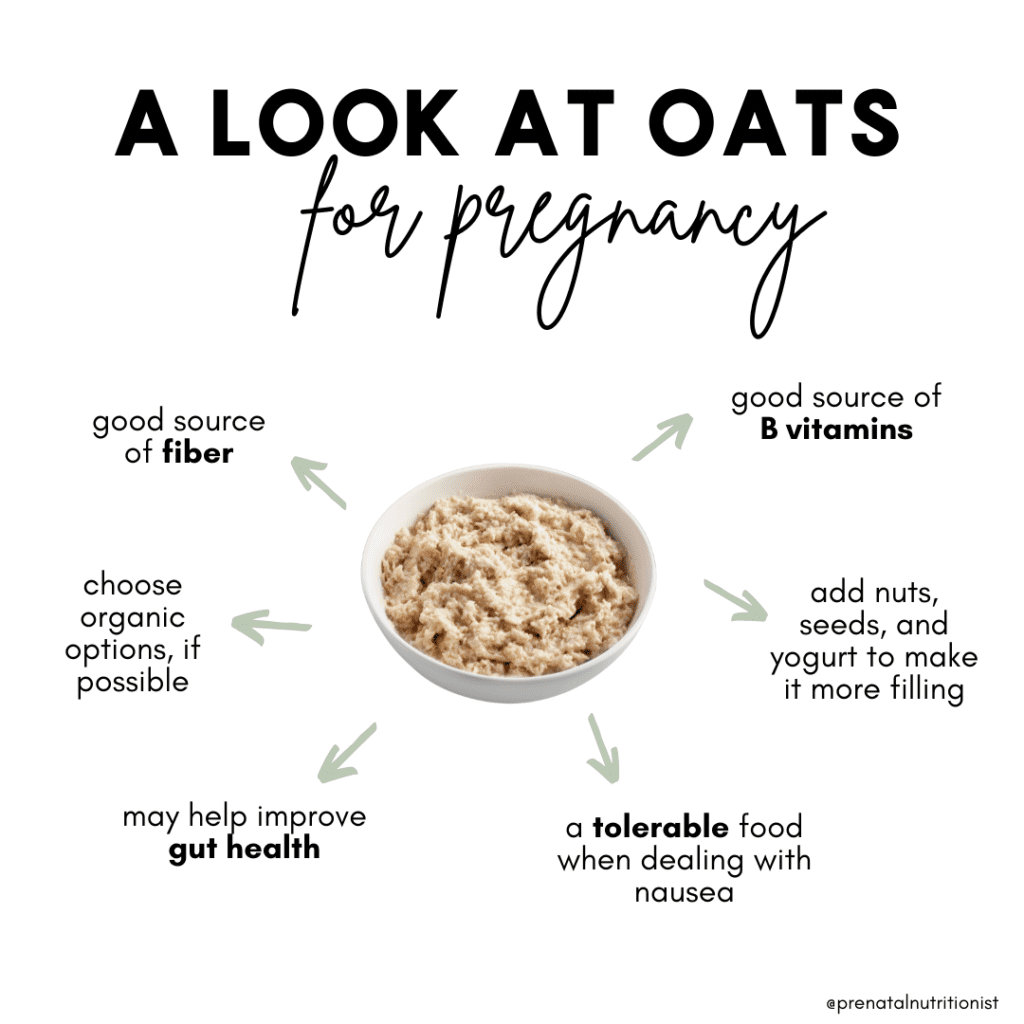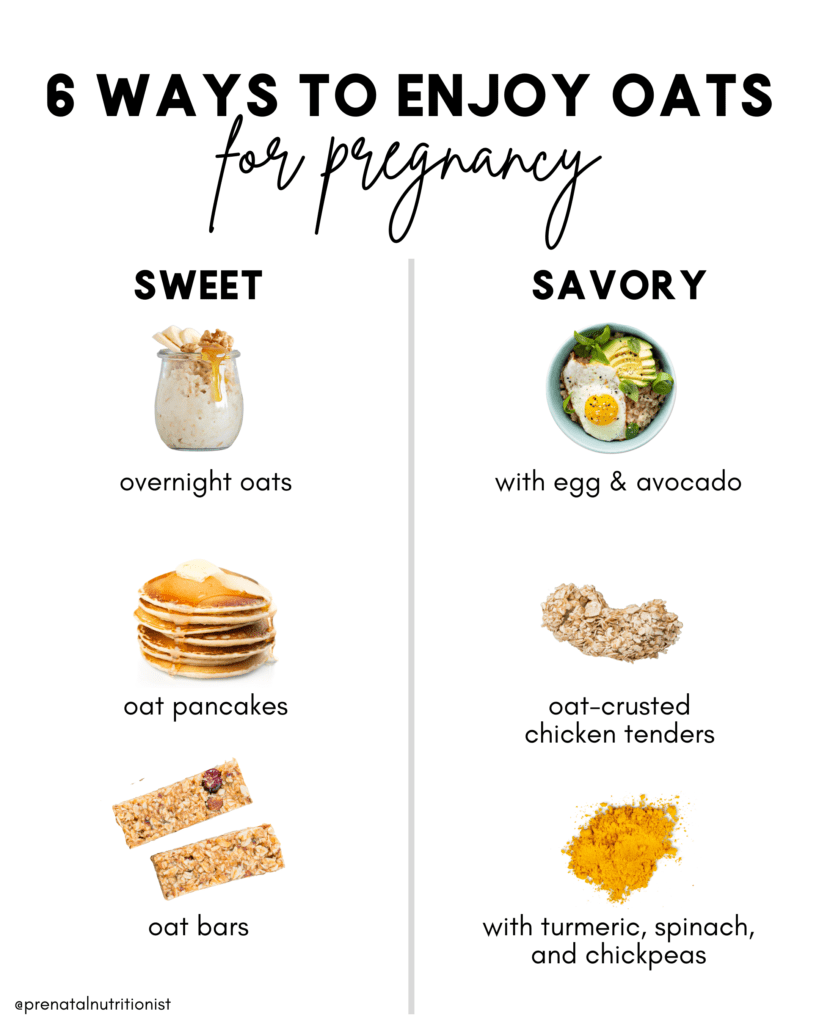We all know and love oats, but what exactly are they?
Oats are a type of grain that originate from a cereal plant called Avena Sativa. Oats specifically refer to the edible seeds of oat grass [1]. Oats are hearty, soft, naturally gluten-free, and known for their nutritional benefits.
Are oats safe for pregnancy?
Generally speaking, oats are completely safe to consume during pregnancy!
They are actually a great option for most pregnancies because of their incredible health benefits! Oats are nutritionally balanced with whole grains, proteins, unsaturated fatty acids, vitamins, minerals, and phytochemicals [5].
Nutritional Value of Oats
According to Cronometer, ½ cup of rolled oats, uncooked contains:
- 153 kcal
- 5.3 g protein
- 10.8 g fat
- 27.4 g carbohydrates
- 4.1 g dietary fiber
- 4.4 g water
- 56 mg of magnesium
- 16.4 mg of choline
- 21.1 mg of calcium
- 166 mg of phosphorus
Oats are also a good source of [5]:
- Vitamin E
- Folate
- Thiamine
- Selenium
- Copper
- Manganese
- Carotenoids
- Sulfur-containing amino acids
Different types of Oats
Instant oats
Also known as quick oats, these are usually found in individual packages that are microwaved with water and come in a variety of flavors. They can be prepared instantly because they’ve been pre-cooked, rolled thinly, and dehydrated so that when hot water is added, the oats absorb it – producing that soft, mushy texture in a matter of minutes [1]!
Rolled oats
Also known as old-fashioned oats, are produced similarly to instant oats except it involves oat groats – which are whole oat kernels that contain the germ, endosperm, and bran. These types of oats have more texture and slightly more fiber than instant oats.
Steel-cut oats
Also known as Irish oats, are the least processed and have the most texture and fiber. They are also made from oat groats that have been cut into smaller pieces. These take the longest to cook, and are great on the stove top. Steel-cut oats are typically the best option if you have blood sugar issues or gestational diabetes.
Benefits of Oats for Pregnancy
Helps keep you fuller longer
The fiber in oats attracts water and increases the thickness of digested food which increases the overall food volume in your belly. As a result, the food takes longer to digest and absorb nutrients – making you feel fuller for longer [1].
Eating nutrient-dense foods is beneficial during pregnancy because your body needs the extra calories – oats are a great source that provide the extra calories and nutrition you need. Since pregnant mamas tend to feel hungrier than they’re usually used to – having oats is a great way to keep you full. However, it is still recommended you find a protein to pair with your oats!
Helps prevent constipation
Oats are an incredible source of mainly soluble fiber that contributes to regular bowel movements and prevents constipation. Oats are able to increase the water weight of digested food and allow it to pass smoothly in your intestines [1].
Fiber is available in many different foods in nature, such as fruits and vegetables, but fiber that originates from grains and cereals, like oats, are superior for digestive health [1]. Constipation is the second most common complaint (first one being nausea) from pregnant mamas; it can really affect daily life and even pose the serious risk of fecal impaction [21]. So, incorporating oats in your diet is a great way to prevent that struggle in the bathroom!
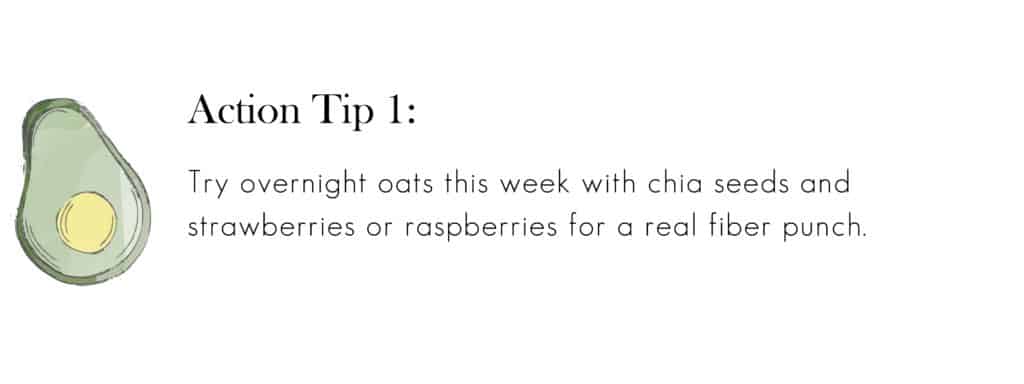
May help with difficult times of nausea/morning sickness
Naturally, oats are quite bland – which makes them perfect for those days you’re feeling nauseous or struggling with morning sickness. These bland carbohydrates tend to be more tolerable when you have an upset stomach because of their bulking effect – allowing the food to sit better in your stomach and aid in easy digestion [22]. Again, try adding some protein and healthy fats. If this doesn’t sound good, make your oats with whole milk.
May help control blood pressure and reduce inflammation
Oats can help control blood pressure because they possess antioxidants that produce nitric oxide – this expands blood vessels, allowing blood to flow more easily and reducing overall pressure [5]. These same antioxidants have been studied for their anti-inflammatory qualities.
Robust evidence is lacking, but promising studies are recognizing their ability to reduce markers of inflammation in adults with high cholesterol [6]. Regulating blood pressure is especially important during pregnancy because according to the CDC, not only has hypertension during pregnancy become more common, it can pose serious risks of preeclampsia, eclampsia, stroke, and even preterm delivery.
Promotes gut health
Reports have shown that the powerful fiber from oats enhances the diversity of gut microbiota [1]. Improvement in gut bacteria can mean less occurrences of digestive issues like diarrhea, constipation, and irritable bowel syndrome [1]. According to a research study done about maternal diet during pregnancy and neonatal microbiota, a pregnant mama’s diet can really shape her baby’s gut health – especially regarding fiber, lipids, and proteins – and make an impact on their microbiota development [24].
Promotes Heart Health
Pregnancy can weigh very heavily on the heart of a mama-to-be; both physically and emotionally. Research categorizes pregnancy as a woman’s first cardiovascular “stress test” [25]. Steady findings are showing that mamas who experience adverse pregnancy outcomes like preterm birth or gestational diabetes have a higher risk of developing heart disease later on in life [25].
Oats contain phytochemicals that play an exceptional role in preventing heart disease. The beta-glucagon (soluble fiber) is found to be higher in oats compared to any other whole grain [7]. Beta-glucagons are commonly used in combating conditions like heart disease. Studies have found that using beta-glucagons in treatment of heart disease can potentially reduce hyperlipidemia and hypertension [9].
May help with gaining the appropriate amount of weight for you
You may have heard pregnancy is a time when you are eating for two! It’s true pregnant mamas may need extra calories and do have increased demands for certain nutrients, eating double the amount of calories you typically eat is not necessary. While we do not like to focus too much attention on weight here, research tells us we cannot ignore it completely.
Gaining too much weight outside of what your body needs can come with adverse effects like increased risk for high blood pressure, gestational diabetes, labor and delivery complications, and even postpartum complications [26].
We want pregnant mamas to fully enjoy their pregnancies with all their favorite foods, but maintaining a balance is key. Research demonstrates the effects of oats on regulating body weight. It also reveals that the dietary fiber found in oats appears to increase appetite-suppressing hormones – which can result in eating less calories from less nutrient-dense foods [10].
Can I enjoy oats if I have gestational diabetes?
It depends! Oats can be a wonderful addition for gestational diabetes, but this will largely depend on the individual.
Oats are loaded with healthy carbohydrates so we want to make sure we are portion controlling the amount and pairing it with healthy fats and protein to prevent high spikes in blood sugar. One cup of cooked oats contains about 30 g of carbohydrates (2 servings, if you are doing carb counting) – you can pair it with peanut butter, greek yogurt, berries, nuts, or some eggs/ sausage on the side to make it more balanced.
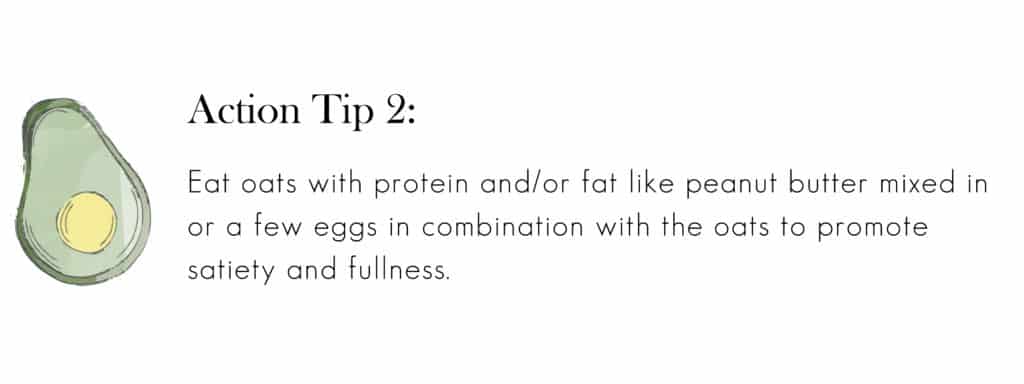
Are there any potential downsides in consuming oats during pregnancy?
GI discomfort
Some people might experience GI discomfort – gas, bloating, diarrhea, and even intestinal blockage. Sometimes, eating oats in excessive amounts can lead to GI issues so try to enjoy them in moderation, especially if you’re experiencing adverse effects.
Possible gluten contamination
Naturally, oats are gluten-free and generally safe for people with gluten intolerance. However, contamination is possible when oats are processed at facilities that also process wheat and other gluten-containing grains.
A study cited by the National Celiac Foundation found that the amount of oats commonly consumed are typically not enough to trigger a reaction for those with gluten intolerance or celiac disease and support the safety of eating oats for such populations in long-term studies [11].
We don’t want to scare pregnant mamas from enjoying oats, so if you’re really worried – you can make sure the oats you buy are labeled as gluten-free.
 Glyphosate contamination
Glyphosate contamination
Glyphosate is an herbicide applied to plants to regulate growth and ripen specific crops [12]. This herbicide is also sprayed on oat crops putting the safety of them in question. At this time, there is no clear consensus regarding the toxicity of glyphosate and its potential carcinogenic qualities by the scientific community [13].
Further studies are needed to determine how much exposure is toxic to humans and its possible harmful effects. However, according to an article by the EWG, “EWG’s first series of tests found glyphosate in all but two of 45 samples of food made with conventionally grown oats, and in about one-third of the 16 products made with organic oats. About two-thirds of the samples of conventional foods had levels of glyphosate above EWG’s health benchmark [14].”
Considering that pregnancy is a vulnerable time period – it may be a good idea to stick to organic oats if you’re worried about glyphosate contamination. Contamination can still occur in organic oats as mentioned above, but using the report published by EWG, we can determine the best brands based on their glyphosate levels.
Recommended Brands: [15,16,17]
- Whole Foods 365 Organic Old-Fashioned Rolled Oats
- Simple Truth Organic Instant Oatmeal
- Nature’s Path Organic Honey Almond Granola
- Zego Oatmeal & Muesli
- Grandy Oats Granola
- Cascadian Farm
- Ambrosial Greek Granola
- Go Raw Granola
- One Degree Organic
- Farm to Table Oatmeal
Which type of oats are the best for pregnancy?
We don’t like to single out just one type of oat as the best because all kinds of food can fit in a healthy, balanced diet for pregnancy. It’s a matter of preference when considering which oats would best suit your dietary lifestyle.
Looking for lots of fiber and an overnight recipe? Try steel-cut oats. Want really soft, creamy oats in a matter of minutes? Maybe go for quick oats. Looking for something in between? Stick to rolled oats.
Just remember to always read the label – instant oats tend to be more processed and can have a lot of added ingredients like sweeteners, artificial flavors, and unfamiliar chemicals and preservatives.
Will eating oats during the third trimester help with milk production?
Considering how popular of a topic this is in the lactation community – there is no evidence-based research to support the theory that oats help increase milk production!
Shocking, right? According to lactation dietitian Marina Lane, she theorizes that it might be due to oat’s phytochemicals that increase nitric oxide – which dilates blood vessels and helps bring more nutrients and oxygen to cells in your breast tissue – thus increasing milk production [19].
Again, there is a lot of research lacking here, but many mamas report oats help increase their supply – so it definitely doesn’t hurt to try. Also keep in mind that there are plenty of other foods that can boost nitric oxide production as well – not just oats.
Ways to enjoy oats
- Hot oatmeal
- Overnight oats
- Granola
- Oat Cereal
- Oat muffins
- Oat pancakes
- Oat smoothies
- Oat bars
- Oat scones
- Oat cookies
- Oat-crusted chicken tenders
- Oat soup
- Oat jambalaya
- Oats with eggs and avocado
- Oats with sun-dried tomatoes, pesto, and parmesan
- Oats with bacon, cheddar, and eggs
- Oats with turmeric, chickpeas, and spinach
The Bottom Line
- Oats are safe during pregnancy and are a great source of many nutrients like fiber, B vitamins, and more.
- While oats can be a great option to include if you are experiencing constipation, they may also cause digestive discomfort in some people.
- Oats are naturally gluten free, but may be contaminated if the facility they are processed in also produces other products that contain gluten. Look for “gluten free” on the label.
- More data on the effects of glyphosate on our health in and outside of pregnancy is needed, however, since pregnancy is a vulnerable time already, it may be wise to choose one of the brands listed above if you enjoy oats regularly.
- There is no research that supports oats increasing milk supply, but many mamas claim it does, so it’s worth giving it a try!
Written by: Laima Numan, Dietetic Intern
Edited/Reviewed by: Ryann Kipping, MPH, RDN, Owner + Founder

